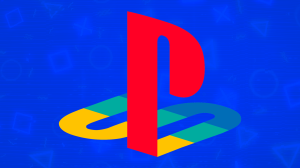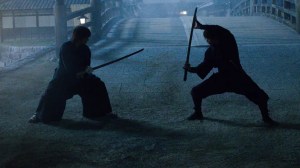The movie industry is treating Zack Snyder’s Justice League like it’s a normal movie release. It isn’t. At the time of writing this (a day after the release of Justice League’s Snyder Cut on HBO Max), the film industry at large is turning the very same gears it always does. A standard press junket was held for Justice League featuring Zack and Deborah Snyder; a standard premiere was held for with select press, fans, and industry (it ultimately failed due to technical issues) was held; critic reviews were released ahead of time, like usual; aggregate sites compiled review scores and influenced public perception – as have the majority of critics who are approaching the film from the normal standalone viewpoint of “judging the work of art” as if it were any other new film release.
Videos by ComicBook.com
But none of this normal. Not when it comes to Zack Snyder’s Justice League, and the long, sordid story of how it ultimately came to be. And none of us should be acting like it is.
No matter what the mainstream casual viewer might think about this strange deja vu movie release, the simple truth is that Zack Snyder’s Justice League only exists due to hardcore fan enthusiasm and dedication. People complain these days that movie fandoms throw around hashtags and petitions in delusional hopes of changing the course of a franchise – but in this case, it actually happened. The #ReleaseTheSnyderCut movement has been officially chronicled (you can order the book HERE, seriously) as an example of fans standing up and fighting for a filmmaker’s vision. And, despite all claims that these sorts of fan whims are pedantic (or worse, childish), it’s looking like Warner Bros. was right to finally listen to the Snyder Cut demand, and invest in finishing the director’s vision. Zack Snyder’s Justice League is poised to do big viewership numbers and is receiving overwhelming good responses. The Snyder Cut will certainly boost HBO Max subscription numbers even further and could rekindle a whole new lane of the DC Films franchise.
Therein lies the real rub. If the Snyder Cut of Justice League had simply been released and remained the niche project so many claimed it would be, then we could treat this more like a typical director’s cut release. However, the hype and success of Zack Snyder’s Justice League are writing a very different story that we must consider and examine, in consideration of why this wasn’t the film we got in the first place.
“Josstice League”

As Zack Snyder’s version of Justice League arrives, the quieted stories about Joss Whedon’s theatrical version of the film are starting to spill out. Cyborg actor Ray Fisher started speaking out about his alleged abusive experience working under Whedon and the executive team at Warner Bros. (including Geoff Johns and Toby Emmerich and Jon Berg) about a year ago, and he was largely the sole voice to speak up. Since Fisher’s story gained traction, more stars from Justice League and other Whedon projects have come forward to allege similar claims of workplace harassment or abuse, and/or to corroborate Fisher’s claims. Now that we are all able to view both versions of Justice League, many fans are connecting dots between what Ray Fisher and other cast and crew claim, and clear examples within Justice League of Whedon desecrating Snyder’s vision of the film, and degrading its cast. It apparently was so bad that even Snyder is now apologizing to his cast for putting them in that position. Snyder has since revealed that personal troubles (the loss of his daughter, Autumn) and intense studio pressures were both contributing factors to him leaving Justice League during post-production (the studio conflict was downplayed at the time he left):
“I just was kind of done with it. I was in this place of [knowing] my family needs me more than this bullshit, and I just need to honor them and do the best I can to heal that world,” Snyder told author Sean O’Connell. “I had no energy to fight [the studio], and fight for [the movie]. Literally, zero energy for that. I really think that’s the main thing. I think there’s a different world where I stayed and kind of tried. And I’m sure I could have . . . because every movie is a fight, right? I was used to that. But I just did not have the [energy]. There was no fight in me. I had been beaten by what was going on in my life and I just didn’t want to, I didn’t care to . . . that was kind of where I was.”
Clearly, something was going on at Warner Bros. in the mid-2000s that negatively impacted just about everyone working on Justice League. In that sense, Zack Snyder’s Justice League release isn’t just the story of fans fighting and winning to get a film they wanted: It’s a director getting the respect to finish his vision; a cast (including many up-and-coming actors Whedon cut from his film) having their hard work in this four-hour dramatic and/or action superhero epic actually getting recognized, and all the metaphor you may/may not want to draw about ‘artistic integrity over commercialism,’ ‘Fan Power vs. Studio Influence,’ etc.
“Something Darker”

However, the release of Zack Snyder’s Justice League is also a lesson about the darker side of how the modern film industry works. About how a film can be taken from a director; the actors forced into making something they never wanted to; and how an entire industry of PR/Marketing forces, news outlets, film critics, and bloggers – and the entire questionable process of press access for favorable reviews – all fall in line to help propel an ill-created film along at the global box office.
How many of the same people who openly endorsed/praised “Josstice League” are now promoting Zack Snyder’s Justice League with little-to-no reference to their previous review and/or promotion of Whedon’s cut? How many critics and viewers alike said “No one cares,” “Never happening,” “Snyder Stans let it go!” or posted dismissive views and/or jokes about getting Snyder’s version of Justice League, during the two-plus years of fans campaigning for #ReleaseSnyder Cut?
Can we really call these critics’ and pundits’ reviews and opinions unbiased and objective, when they’ve already publicly derided the film and/or its director publicly before the film was released? Do we really now live in a society where memory is expected to be so short that no one notices such blatant hypocrisy – even when it’s written in the permanent ink of the Internet? What are we actually doing here?
This Isn’t Over

These are the sorts of questions that need to be asked, and debated, and discussed after the initial hype of Zack Snyder’s Justice League has died down. This is an unprecedented moment at a very pivotal time in the film industry, and it’s best we get a proper perspective on where we’ve been, before we get where we’re going next. Because it already looks like “ReleaseTheSnyderCut” won’t be the end. A drumming chorus is already springing up for “#ReleaseTheAyerCut” of Suicide Squad and a larger “#RestoreTheSnyderVerse” movement to put Zack back at the helm of the DC Films Universe. This is only getting started.
Zack Snyder’s Justice League is now streaming on HBO Max.








